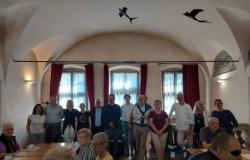They were presented during the meeting “Enterprising Communities. People and places of regeneration in Rome – The experience of the Neighborhood Workshops” i six laboratories active in the Rome area: Corvial, Tor Bella Monaca, Santa Maria della Pietà, Centocelle-Mystica, Quarticciolo And Bastogi.
The laboratories, promoted by Roma Capitale and coordinated by the Sapienza, Roma Tre and Luiss Guido Carli Universities, were created with the scope Of contribute at the urban regeneration of the city territory through a governance model shared between central structures, departments and municipalities, which has as its starting point thecontribution from the local communities in the phases of co-planning And co-planning. The goal is to do choices not only shared And accepted but listen own and defended by those who live in the neighborhoods.
During the meeting “Urban regeneration for the civil economy. the sustainable future of people, cities, neighborhoods and suburbs” the significant contributions that Neighborhood Laboratories can bring to the creation of real construction sites Of participation from the civil society and not only to the improvement of technical and social infrastructures.
The laboratories, in fact, they were designed to look at the social and environmental challenges of the future, overcoming the problems of individual neighborhoods and imagining solutions through inclusive strategic planning.
Three are the cornerstones most important of the experiences presented:
- – know and give value to what already exists;
- – Do experience And to stay in places with participatory processes;
- – think of tools capable of promoting co-programming And co-planning on the civil economy and sustainable development of the city of Rome.
With the technical support of NeXt Economia Social and civil research tools such as the Empathy map and the creation of virtual noticeboards were used to co-construct the value generated by the participants in the Workshops and the priorities on which they are intervening.
This material formed the first version of the Community Instant book (available here) as one space for dialogue and updating of good regeneration practices that are already present in the Roman territory.
Was this article helpful or interesting?
Support Abitareroma Click here! ↙
write a comment





